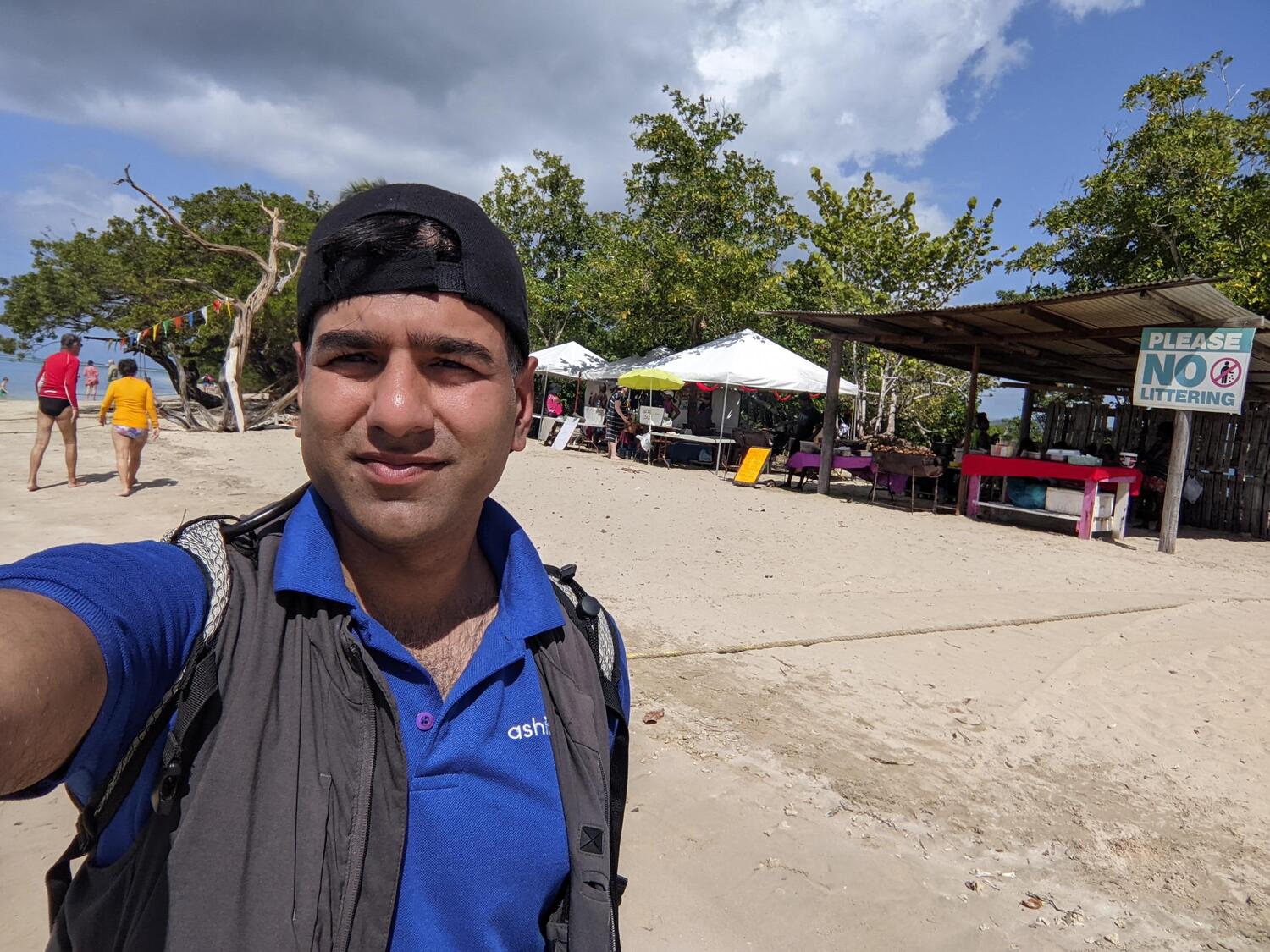Sri Lanka is a small island country near the southern coast of India. My trip was heavily focused on Ramayana and Hinduism. While I loved it, those who have little interest in Hinduism might find the trip. Like Kerala and Sikkim, I had a chauffered guide for the trip. I would highly recommend doing that, otherwise, a packed trip becomes harder to pull off. You can see a list of recommended guides here.
Day 1 – Chilaw and Trincomalee
We started the journey from Sri Munneswaram Devasthanam/श्री मुन्नेश्वर देवस्थानम्. This is the temple where Rāma prayed after killing Rāvaṇa to get rid of Brahm hatya dosham.

Manavari/मानावरी Kovil is near by. Kovil means temple in Tamiḻ. Manavari Kovil is the first place where Rāma installed a Shivling.

From here begins a 6-hour long drive to Trincomalee.
For those interested in Buddhist stupas, Anuradhapura is on the way.
However, we were short on time, so, we had to directly head to Trincomalee.
Our first stop in Trincomalee was Shri Badrakali Amman/श्री भद्रकाली अम्मा Hindu Temple.

Our next stop was Thirukoneswaram/तिरुकोणेश्वरम Kovil.
This temple was built on the instructions of Shiva for his ardent follower Rāvaṇa.

Day 2 – Sigiriya, Dambulla and Kandy
Sigiriya mountain is a famous hike in Sri Lanka. Sigiriya comes from the Sanskrit words “Simha + giri” meaning “the lion mountain”. There are 1200 steps to the top. This place used to be one of the Rāvaṇa palaces. The entrance fee is expensive (USD 35) with a 50% discount for SAARC citizens. It takes about 1.5 hours to reach the top.




Our next stop was Dambulla Royal Cave temple. There are only 300 steps to the top. The ticket was 2000 LKR (no SAARC discount). I would recommend taking a guided tour (750 LKR) here.



While getting down, go down the left side and you will reach the Golden Temple, which is one of the largest statues of Buddha in Dharma-chakra position.

In the evening, we visited the Dalada Maligawa Temple. The entrance fee is 2000 LKR (1500 LKR for SAARC). Like the Buddha temple in Singapore, this also claims to have Buddha’s tooth relic. If you are planning to see the Kandyan dance show, aim to see one at 4:30 PM.

Day 3 – Hilly drive from Kandy to Ella
Our first stop of the day was Hanuman Temple Ramboda. This is the place where the forest-dweller/vānara Hanumāna is believed to have taken a stop while heading to Ashoka Vātikā to meet Rāma’s wife Sitā. The temple, however, was built recently in 1999 by Chinmaya Mission. The area is called Ramboda or Ram’s force as it is believed that this is where the Ram’s vānara gathered before attacking Rāvaṇapura to the south.

Our second stop was the Seeta Eliya or the Sita Mata temple. This is the place where Sitā was kept captive by Rāvaṇa.

Our last stop of the day was the place of Sita’s Agnipariksha/अग्निपरीक्षास्थल. This is these days a Buddhist Temple, “Divurumwela Raja Maha Viharaya”. However, the priest here is a great guide who will tell us the detailed history of Rāvaṇapura. Most people staying in Kandy do the first two stops and skip this one. However, I highly recommend doing this.

Day 4 – Ella to Mirissa
Ella seems to be the most famous among Europeans (including Russians). The moderate climate does help. The city, however, is pretty expensive compared to Kandy or Trincomalee.
Our first stop here was Rāvaṇa’s cave. The entrance fee is 200 LKR.

Do carry a headlamp for this. You still, however, can’t go too far here.
Our second stop was Ravana waterfall.
These are gorgeous and the nearby market is a great place to do snacking.
However, the police ensure that you are not swimming here.

Our next stop was Pallewela waterfall where one can swim. It is really hard to get here though. The entrance fee close to the end is 100 LKR.


Our last stop was 10th-century Buddha carvings of “Buduruwagala Raja Maha Viharaya”.

Day 5 – Mirissa to Colombo
We started the day with snorkeling. Unlike French Polynesia or the Caribbean, the water of the Indian Ocean surrounding Sri Lanka has really strong waves. So, the visibility is usually poor. However, our guide was pretty good and we got a chance to swim with a Turtle.
There’s a small rock called Parrot Rock for nice views but apart from that there isn’t a lot to do in Mirissa.

From here we drove to Colombo. It is best to keep Colombo for the last day. Our first stop was the iconic Lotus Tower.

Then we had some snacks at Pettah Floating Market. It seems to be in somewhat derelict shape.

Note
- Here’s the list of recommended guides
- A detailed guide on various temples
- Contrary to rumors, Indian Rupee is not widely accepted in Sri Lanka. Even at the places, where it is accepted, the exchange rate makes it a mistake to use it over carrying Sri Lankan Rupee or US Dollar.

